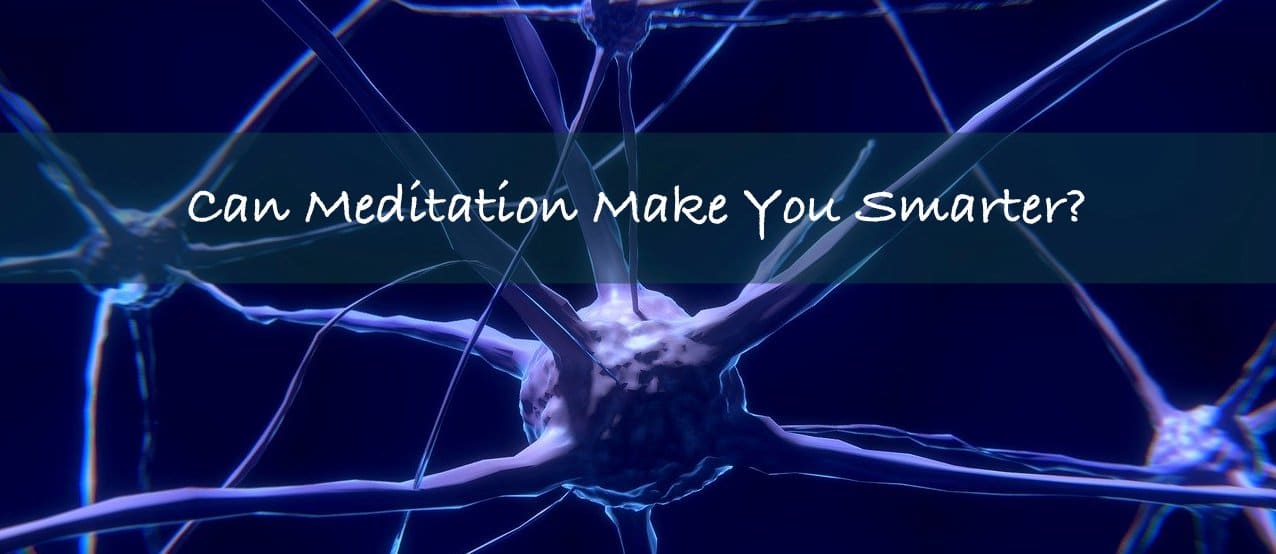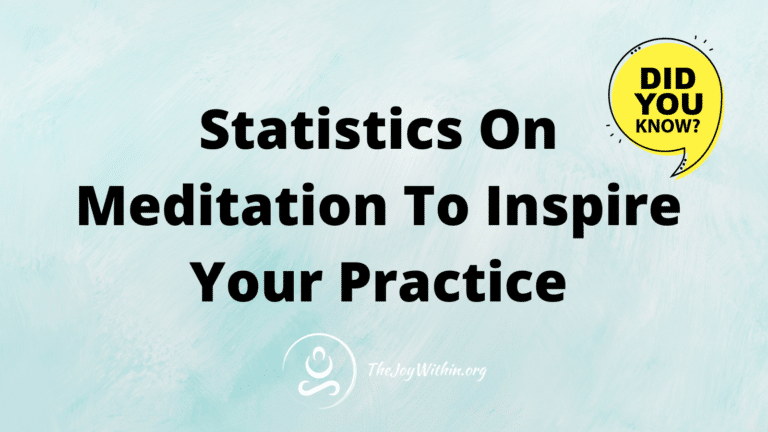Neuroscientists, psychologists, and mindfulness experts have been studying the effects of meditation on the brain for decades now, looking at everything from whether or not meditation can make you smarter to how it impacts your stress-response, aging, and other key indicators of good mental health.
It’s safe to say the results are in.
Does Meditation Make You Smarter?
The short answer: YES.
Meditation had been proven to have dozens of positive impacts on mental health, all of which contribute to improved mental capacity.
While this is difficult to measure definitively because there is no single mark for intelligence, meditation ranks incredible well across the board, including some of the most popular indicators of intelligence – your IQ and EQ.
We’ll dive into those factors in a moment, but first, let’s look at one of the reasons behind meditation’s positive impact.
Changing The Brain With Neuroplasticity
The fundamental reason why meditation is such a powerful tool for sustained mental health boils down to one key characterisic of the human brain: neuroplasticity.
Basically, neuroplasticity refers to the brain’s ability to change and adapt over time.
It is one of the key factors that explains why intelligence can be learned, and how you can adapt to any number of conditions, including the formation of your primary beliefs and daily habits.

Read more about Easy Happiness Habits: Small Daily Actions to Be Happy.
Whenever you think, say, or do anything, your brain fires synapses. Synapses that fire together, wire together, which means there is a physical connection in the brain drawn between two related thoughts.
The more you reinforce this connection (by repeating the thought or action), the more easy it becomes to do it. When you repeat thoughts, you form beliefs (through a process known as autosuggestion). When you repeat actions, you create habits.
This ability for the brain to physically rewire itself to meet your evolving needs is the basis for how meditation can reshape it to create positive, long-lasting transformation in your life.
Meditation and Intelligence – Raising Your IQ
Now, back to the main event.
Studies consistently show that a daily meditation habit is directly correlated with an increase in brain capacity and function.
For example, in a study by Siegfried Othmer with the Association for Applied Psychophysiology and Biofeedback, indicated that people who meditated daily showed an average increase in their IQ (intelligence quotient) of 23%!
A further study indicated that the benefits of meditation can kick in after just 4 days of meditating for 20 minutes a day. And, Harvard psychologist Shawn Achor teaches that practices like meditation and gratitude, when developed as a habit, can continue to have prolonged effects for up 6 months, even after you stop meditating.
Those are some pretty powerful reasons to get started with meditation, but IQ is by no means the single, definitive measure of intelligence.
So, how does meditation stack up in other areas of brain research?
Related Post: The Science behind Why Meditation Makes You Happier.

8 Ways Meditation Increases Your Intelligence
- Meditation Improves Brainwave Patterns. Our brains naturally cycle through different phases. The normal waking state is Beta, which is the frequency that dominates most of our conscious lives. During meditation, however, you can alter this frequency to achieve alpha, theta, or delta states while remaining conscious, giving your brain additional insight and intellectual prowess.
- Meditations Increases Brain Size. Brain size is commonly measured by the thickness of grey matter. University of Wisconsin researchers determined that meditation can increase the presence of grey matter, thanks to neuroplasticity.
- Meditation Quiets The Monkey-Mind (Reduces Self-Referential Thoughts). A Yale University study demonstrated that consistent meditation could decrease the activitiy in the “default mode network,” the part of the brain associated with self-referential thought and mind-wandering. Activity in this region has been linked to lower self-esteem and decreased happiness. Learn more about how to quiet the mind.
- Meditation Balances the Left and Right Brains. Everyone has a tendency to use one brain hemisphere more than the other, but, when you meditate, you can help to balance out activity and promote cross-hemisphere communication. This allows for faster processing and more creative insights.
- Meditation Raises Intuition and Awareness. Intuition is your ability to have an instinctual response to a situation, which you often cannot describe logically. It’s the feeling of ‘just knowing’ and while this connection is difficult to measure objectively, there are many self-reported studies linking meditation and intuition in high-achieving individuals.
- Meditation Slows Aging in the Brain. A survey of long-time meditators by UCLA showed that individuals who meditate consistently for 20 years had a higher volume of grey matter in the brain, compared to those who did not. This means that the practice helped to preserve brain function as individuals got older, with effects that stretched across all regions of the brain.
- Meditation Improves Memory. Memory is studied both in terms of short and long term ability. Meditation boosts activity in the hippocampus and frontal lobe of the brain, two areas that are directly linked to memory and performance. One study showed that meditation can increase working memory by a factor of 10. Learn more about how meditation increases memory power.
- Meditation Increases Your Emotional Intelligence (EQ). Emotional Intelligence is the ability to become more aware of your emotions and the emotions of those around you. Since meditation increases your awareness, that also means that you become more empathic, meaning that it helps you to recognize subtle emotional cures from people around you, a ‘sixth sense’ of emotion, so to speak.




